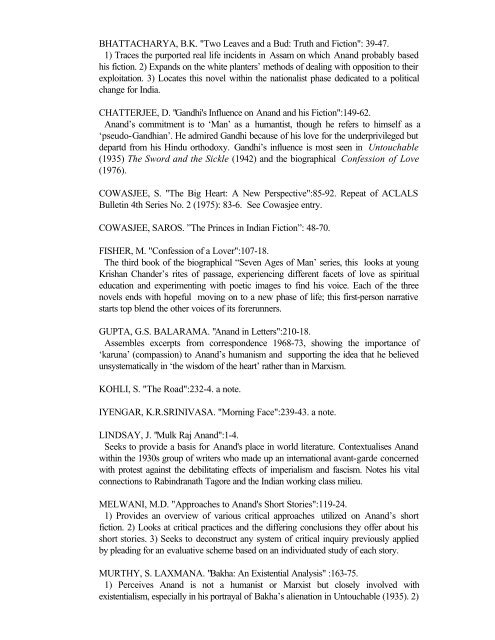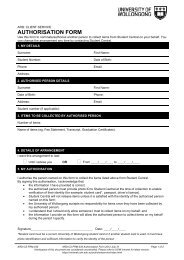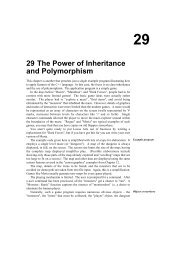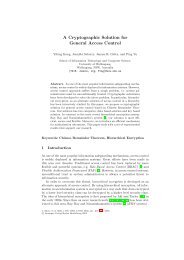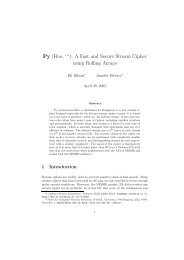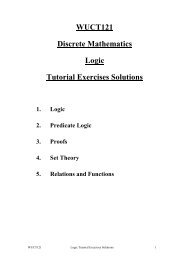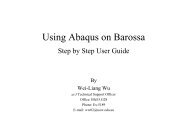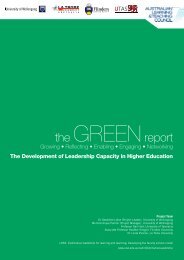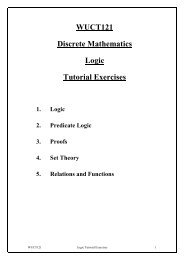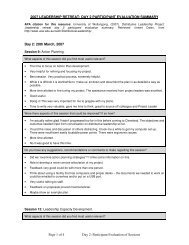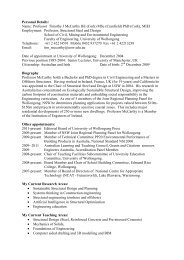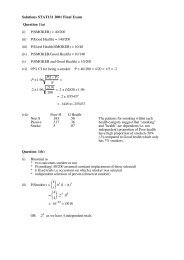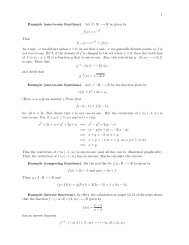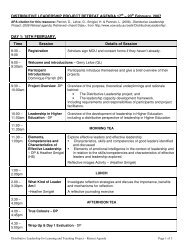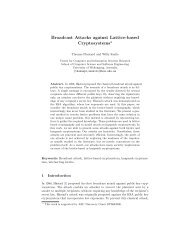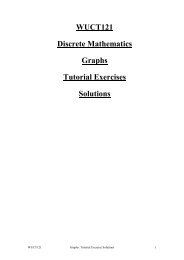india author m 1- a-nan - University of Wollongong
india author m 1- a-nan - University of Wollongong
india author m 1- a-nan - University of Wollongong
Create successful ePaper yourself
Turn your PDF publications into a flip-book with our unique Google optimized e-Paper software.
BHATTACHARYA, B.K. "Two Leaves and a Bud: Truth and Fiction": 39-47.<br />
1) Traces the purported real life incidents in Assam on which A<strong>nan</strong>d probably based<br />
his fiction. 2) Expands on the white planters’ methods <strong>of</strong> dealing with opposition to their<br />
exploitation. 3) Locates this novel within the nationalist phase dedicated to a political<br />
change for India.<br />
CHATTERJEE, D. "Gandhi's Influence on A<strong>nan</strong>d and his Fiction":149-62.<br />
A<strong>nan</strong>d’s commitment is to ‘Man’ as a humantist, though he refers to himself as a<br />
‘pseudo-Gandhian’. He admired Gandhi because <strong>of</strong> his love for the underprivileged but<br />
departd from his Hindu orthodoxy. Gandhi’s influence is most seen in Untouchable<br />
(1935) The Sword and the Sickle (1942) and the biographical Confession <strong>of</strong> Love<br />
(1976).<br />
COWASJEE, S. "The Big Heart: A New Perspective":85-92. Repeat <strong>of</strong> ACLALS<br />
Bulletin 4th Series No. 2 (1975): 83-6. See Cowasjee entry.<br />
COWASJEE, SAROS. ”The Princes in Indian Fiction”: 48-70.<br />
FISHER, M. "Confession <strong>of</strong> a Lover":107-18.<br />
The third book <strong>of</strong> the biographical “Seven Ages <strong>of</strong> Man’ series, this looks at young<br />
Krishan Chander’s rites <strong>of</strong> passage, experiencing different facets <strong>of</strong> love as spiritual<br />
education and experimenting with poetic images to find his voice. Each <strong>of</strong> the three<br />
novels ends with hopeful moving on to a new phase <strong>of</strong> life; this first-person narrative<br />
starts top blend the other voices <strong>of</strong> its forerunners.<br />
GUPTA, G.S. BALARAMA. "A<strong>nan</strong>d in Letters":210-18.<br />
Assembles excerpts from correspondence 1968-73, showing the importance <strong>of</strong><br />
‘karuna’ (compassion) to A<strong>nan</strong>d’s humanism and supporting the idea that he believed<br />
unsystematically in ‘the wisdom <strong>of</strong> the heart’ rather than in Marxism.<br />
KOHLI, S. "The Road":232-4. a note.<br />
IYENGAR, K.R.SRINIVASA. "Morning Face":239-43. a note.<br />
LINDSAY, J. "Mulk Raj A<strong>nan</strong>d":1-4.<br />
Seeks to provide a basis for A<strong>nan</strong>d's place in world literature. Contextualises A<strong>nan</strong>d<br />
within the 1930s group <strong>of</strong> writers who made up an international avant-garde concerned<br />
with protest against the debilitating effects <strong>of</strong> imperialism and fascism. Notes his vital<br />
connections to Rabindranath Tagore and the Indian working class milieu.<br />
MELWANI, M.D. "Approaches to A<strong>nan</strong>d's Short Stories":119-24.<br />
1) Provides an overview <strong>of</strong> various critical approaches utilized on A<strong>nan</strong>d’s short<br />
fiction. 2) Looks at critical practices and the differing conclusions they <strong>of</strong>fer about his<br />
short stories. 3) Seeks to deconstruct any system <strong>of</strong> critical inquiry previously applied<br />
by pleading for an evaluative scheme based on an individuated study <strong>of</strong> each story.<br />
MURTHY, S. LAXMANA. "Bakha: An Existential Analysis" :163-75.<br />
1) Perceives A<strong>nan</strong>d is not a humanist or Marxist but closely involved with<br />
existentialism, especially in his portrayal <strong>of</strong> Bakha’s alienation in Untouchable (1935). 2)


